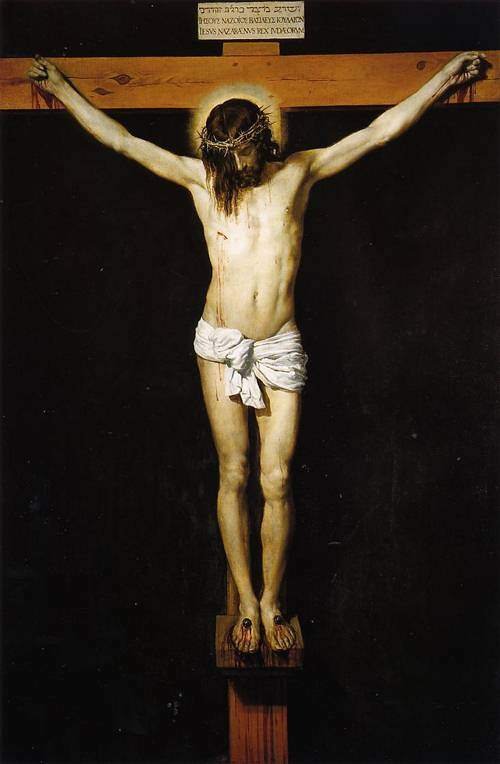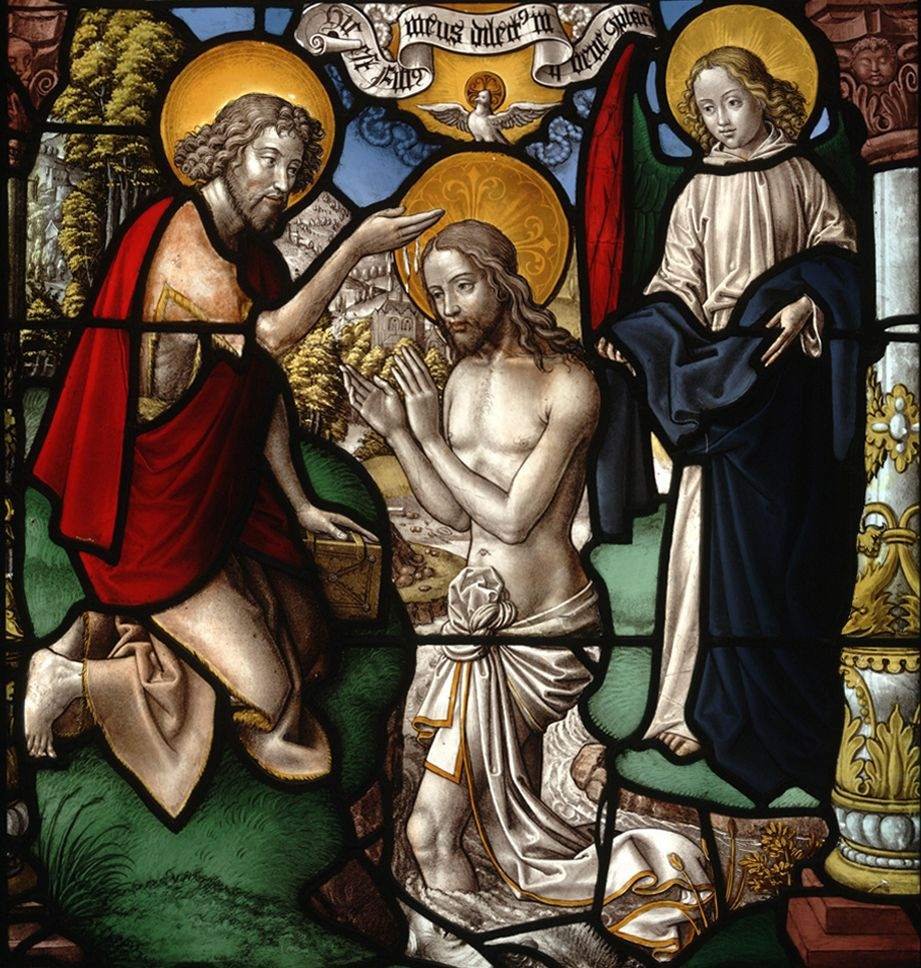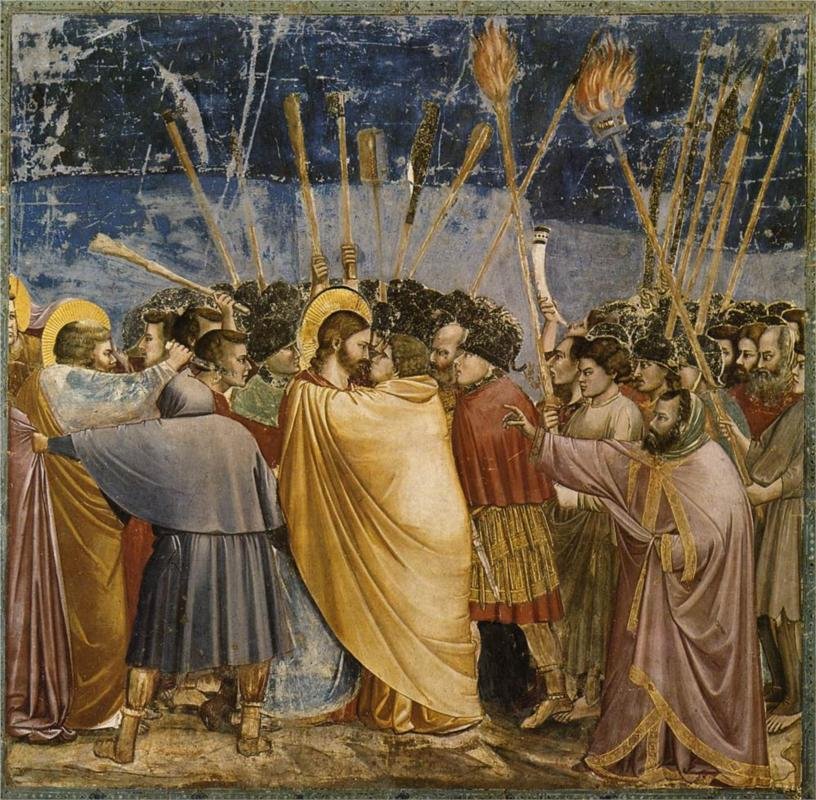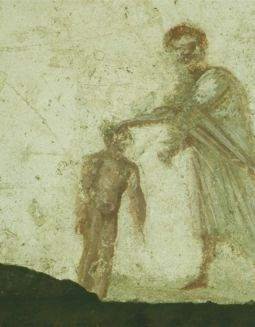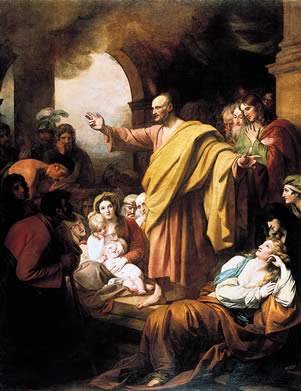Part three of a longer thought on grace and justification and “Falling from Grace.” [Part one. Part two. An aside.]

Bartolomé Esteban Murillo, Christ on the Cross (1665) (WikiArt.org).
So, then, is justification merely a forensic declaration acquitting the sinner of sins, as the Protestants say? Or is it, as the Catholic Church teaches, an actual infusion of grace that cleanses and purifies the soul, obliterating sin and making the sinner not sinful? To ask an even more basic question: Is grace an actual thing, an objective gift that is actually given by God and received by the sinner — “God gives grace to the sinner”? Or is it an abstract concept, like favor, merely describing God’s disposition toward the sinner — “God is gracious to the sinner”? Is the sinner justified because God changed the sinner, making him acceptable, or because God changed His attitude toward the sinner, who has not objectively changed?
In the latter, Protestant view, man is justified because God assumes an objectively different disposition to the sinner. He no longer sees a sinner at all, but sees only the righteousness of Christ; and future sin cannot affect or alter this new disposition. Given this understanding, the idea of a Christian confessing future sins (1 John 1:9) seems almost superfluous. A standard Protestant view seems to be that even though his sin is covered by the Blood of Christ, a Christian is nonetheless obligated to obey God and to seek His forgiveness when one fails. I have even read some Protestant commentary seeking to draw a distinction between God’s divine judgment upon the unjustified sinner and His paternal chastisement upon a wayward Christian.
In the Catholic view, on the other hand, grace is an actual thing that is given by God to the sinner, in the form of love poured into His heart and the gift of the Holy Spirit, such that it fills him, cleanses him, and transforms him. The concepts of regeneration, justification, and sanctification are difficult to separate in the Catholic understanding: though they describe different effects of grace, they are all effected by the same grace poured into the soul, often worked at the same time. This grace is called sanctifying grace, because in addition to the forensic aspect of being made right in God’s sight, this grace actually makes us holy, turns our hearts toward Christ, and begins the process of transforming us in His image (2 Corinthians 3:18) — that we might become the righteousness of Christ (2 Corinthians 5:21).
The response to sin
In the end, these distinctions profoundly affect the way a Christian views sin and grace. The Catholic response to serious sin is to repent and confess the sin and seek God’s mercy and forgiveness — which is always freely given, without limitation, a gift of His mercy and grace and a work of His healing. He picks us up, mends our wounds, and sets us back on the road. Protestants may or may not even see the need for the confession of sins: since in many views, the grace of God’s justification has already been given in full, there is, in a practical sense, no more comfort to be offered; only the assurance (false assurance, the Catholic might say) that all one’s sins are already forgiven.
I will leave much more to say here for our discussion of the Sacrament of Confession, but let me briefly say this: Only God forgives sins. Catholics do believe that a sinner can be forgiven his sins without the benefit of sacramental Confession, if he is truly repentant and contrite for his sins. Confessing sins, as Scripture teaches, whether to a minister, before the church, one to another, or even privately to God, places one in a much better position toward one’s sin than not, since it expresses that contrition.
Both the Catholic and Protestant views can be defended scripturally (the Catholic view, in my judgment, being more consistent with the whole of Scripture, not to mention Tradition). Is one “more Christian” than the other? Protestants today, in my experience, are much more likely to charge that Catholics have a mistaken understanding of grace than vice versa. But any view that understands God’s love and mercy as abundant and freely flowing, and His redemption and salvation as a free gift of grace by the Cross of Christ, cannot miss the mark entirely.
Next up: Falling from Grace, and God’s Mercy and Forgiveness


